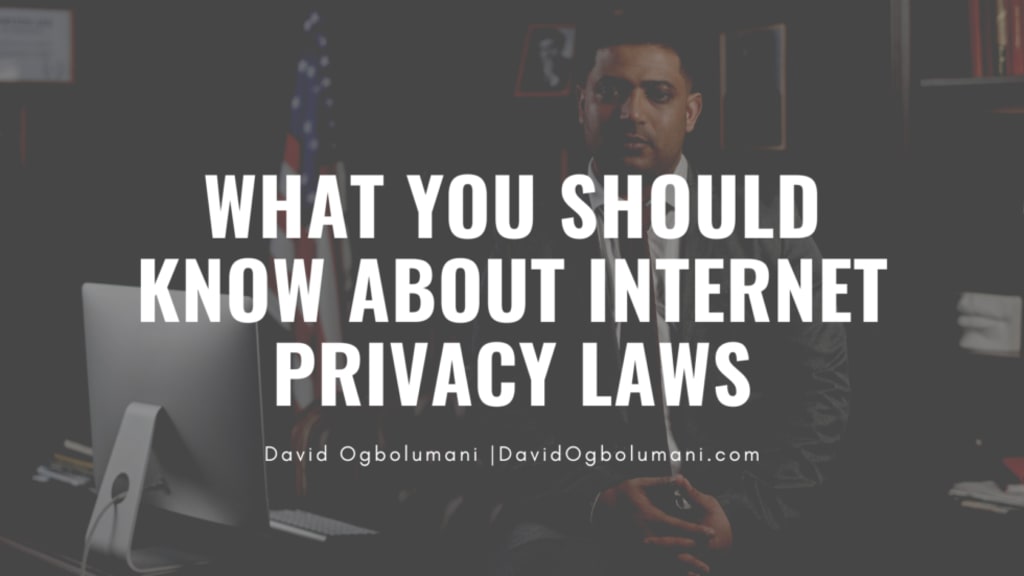What You Should Know About Internet Privacy Laws
By: David Ogbolumani

The rise of online privacy laws in 2018 was caused by the erosion of public confidence in protecting their data. The initial steps were the European Union’s General Data Protection Regulations and California’s Consumer Privacy Act.
Due to the increasing number of states enacting their data security laws, more businesses are now required to follow and implement regulations that protect the privacy of their customers.
A survey conducted by GetApp revealed that 84% of marketers are confident that their company will be able to comply with the new regulations regarding data privacy. However, only 67% of marketers believe that the US has a comprehensive privacy law.
To stay ahead of the curve, small businesses should regularly monitor and remain aware of the changes in the regulations and laws affecting their customers’ privacy.
This article will cover the various regulations that are currently in place and upcoming legislation that will affect your business.
Upcoming state legislation
Despite the lack of a comprehensive privacy law in the US, a proposed federal legislation known as the American Data Privacy and Protection Act (ADPPA) could improve the country’s online privacy laws. It would allow states to pass legislation that protects their customers’ privacy.
The first state to pass comprehensive legislation on consumer data protection was California in 2018. Other states, such as Connecticut, Virginia, and Colorado, followed suit and enacted their privacy laws.
The Colorado Privacy Act, which is part of the state’s Colorado Consumer Protection Act, will take effect on July 1, 2023. It holds companies responsible for how they collect, use, and treat customer data.
In addition to holding companies responsible for collecting and using customer data, the Connecticut Personal Data Privacy and Online Monitoring Act allows consumers to access, correct, and delete their data. It also provides standards for responsible practices.
In Utah, the Consumer Privacy Act gives consumers the right to know what information is being collected and how it is used. It takes effect on December 31, 2023.
The Virginia Consumer Data Protection Act, which takes effect on January 1, 2023, applies to companies that process the data of more than 100,000 customers. Like other state privacy laws, this law allows consumers to opt-out of receiving marketing and promotional offers.
General Data Protection Regulation (GDPR)
The European Union introduced the General Data Protection Regulation (GDPR) on May 25, 2018. It took effect on July 20, 2018, in the EEA, including non-EU countries such as Norway, Iceland, and Liechtenstein.
The goal of the GDPR is to protect the privacy of individuals’ data when it is collected and stored online. It allows users to opt-out of receiving marketing and promotional offers by restricting their data collection and use. This regulation also gives data subjects the right to access and correct their information.
Although the GDPR specifically protects the privacy of individuals in the European Union and the EEA, it can also apply to organizations and individuals in other countries.
The GDPR does not apply to citizens specifically. It’s focused on users located in countries covered by the regulation, whether they’re citizens, expats, or visitors. Also, the law does not apply to citizens of the European Union and the EEA when it comes to data transactions outside of the region.
In other countries, organizations and individuals must follow the GDPR regarding customer data collection, use, and storage. This means that they have to follow and implement regulations to protect the privacy of their customers’ information.
Over 900 companies have been fined for violating the regulations since the law was passed in May 2018. Some of these include Amazon, Google, Facebook, and H&M. Non-compliance with the rules can lead to steep fines, reaching up to 20 million euros or 4% of a company’s gross revenue.
Despite the penalties for violating the regulations, only 45% of marketers are very familiar with the GDPR. A third of them said they were somewhat familiar with it, while 26% said they were not.
Suppose your small business is not affected by the regulations. In that case, consider it as a roadmap to ensure that you are following the regulations and that you can gain a competitive advantage. This will allow you to avoid being caught off-guard by future legislation.
Enhancing and managing the privacy of your customers’ data is a marketable feature that can show them that you care about their well-being.
About the Creator
David Ogbolumani
Aside from David Ogbolumani's skill with global privacy and data protection issues, He has a blend of legal and IT credentials and is in a league of his own since it is uncommon to find an IT expert who also possesses a legal degree.






Comments
There are no comments for this story
Be the first to respond and start the conversation.